Excavation Contractors Montrose-Ghent
Find Excavation Companies in Montrose-Ghent
Receive up to 3 Excavation Services quotes for your project today! Compare profiles, reviews, accreditations, portfolio, etc... and choose the best offer.

Evans Landscaping
3.647 reviews4229 Round Bottom Rd., Cincinnati, 45244-1629, USAbout We know your home is your most important investment and improving curb appeal with inspired landscaping is a smart move. We can help with every step of the process, starting with design ideas—all the way through to clean-up and recycling. During the more than 30 years that we have been in business, our services have continued to grow but one thing has never changed: our commitment to quality and customer satisfaction. Whether you are planting a single tree or creating a backyard masterpiece, you’ll find that we offer superior selection, courteous service, and exceptional quality. We have the team, the knowledge, and the products to make your project a success. Working with Evans means getting the job done on time, on budget, and with truly impressive results. Call us today about materials and supplies, landscaping, demolition, site development, and excavation, or trucking and hauling. We have what you need and we can deliver it the same day.
- Services
- Why Us?
- Testimonials
- Gallery
Get Quote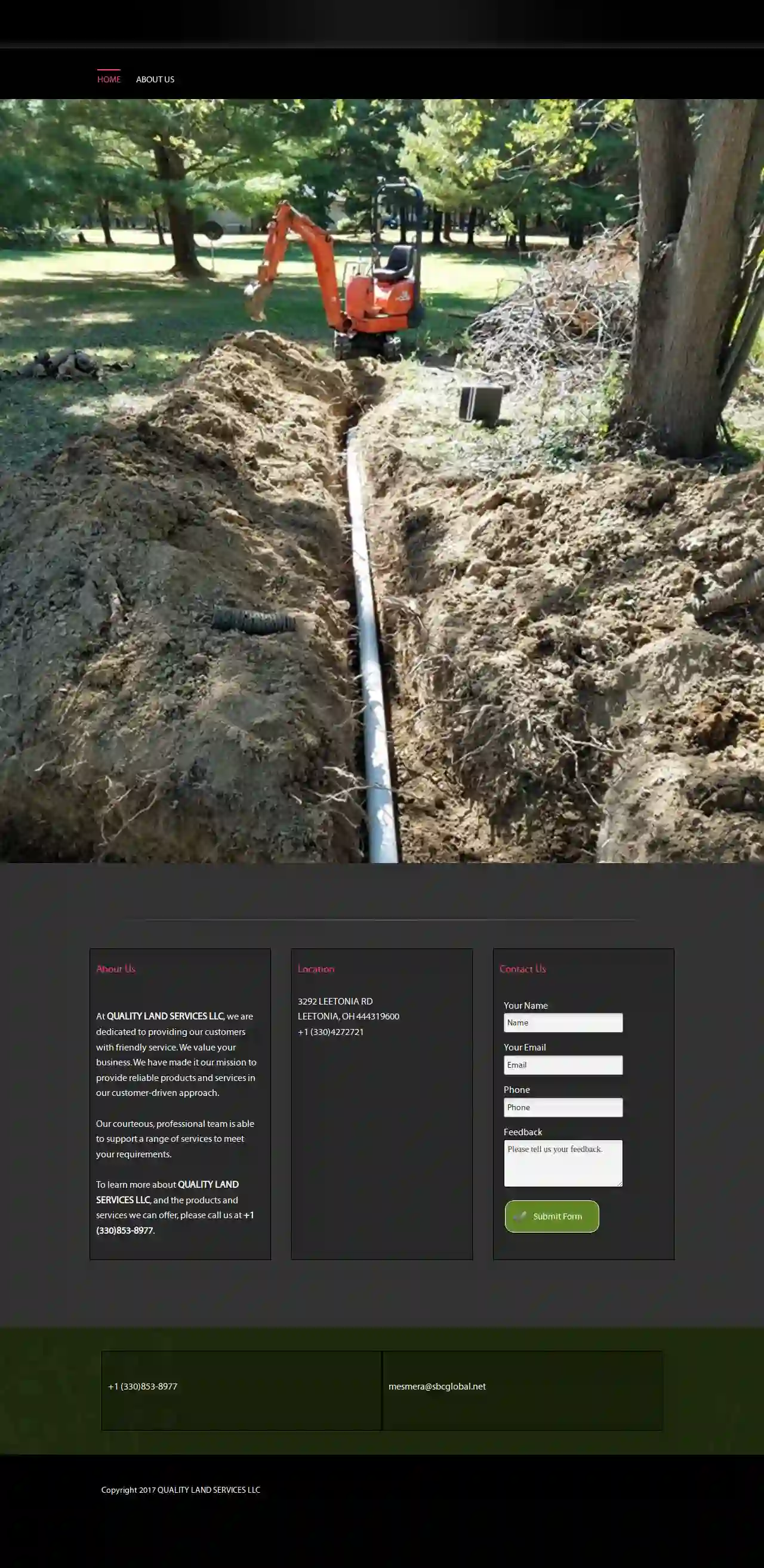
Quality Excavating
3.52 reviews3292 LEETONIA RD, LEETONIA, 44431, USAt QUALITY LAND SERVICES LLC, we are dedicated to providing our customers with friendly service. We value your business. We have made it our mission to provide reliable products and services in our customer-driven approach. Our courteous, professional team is able to support a range of services to meet your requirements. To learn more about QUALITY LAND SERVICES LLC, and the products and services we can offer, please call us at +1 (330)853-8977.
- Services
- Why Us?
- Gallery
Get Quote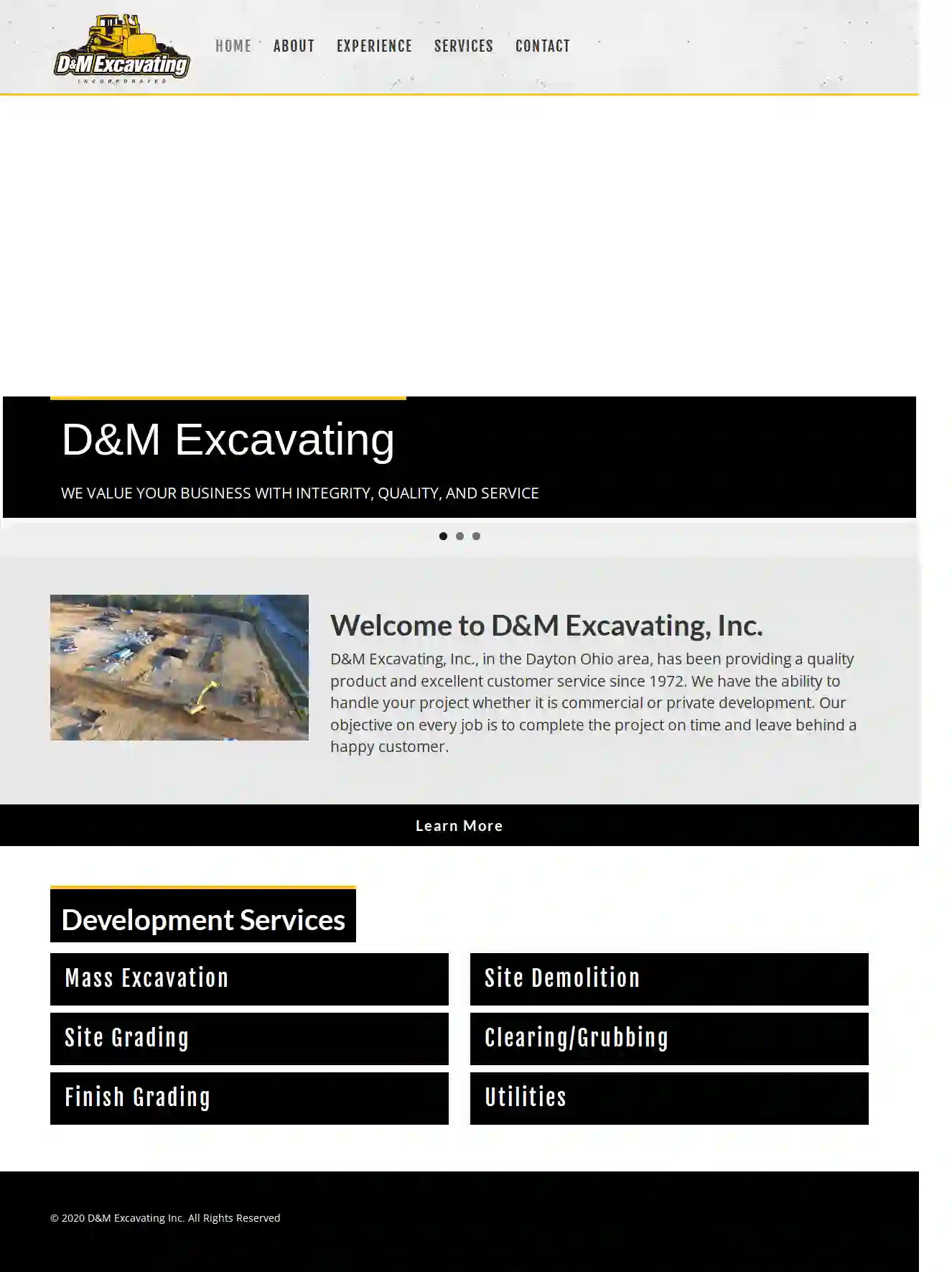
D & M Excavating Inc
4.47 reviews9465 State Route 202, Tipp City, 45371, USAbout D&M Excavating, Inc. D&M Excavating, Inc., serving the Dayton Ohio area, has been providing quality products and excellent customer service since 1972. We have the expertise to handle your project, whether it's commercial or private development. Our commitment on every job is to complete the project on time and leave behind a happy customer. D&M Excavating, Inc. has been in business for over 40 years. During this time, we have worked primarily in the Miami Valley on a large variety of projects for many customers while maintaining relationships with several repeat customers. We are large enough to handle most any project but remain small enough that our owners get to each job daily to check on progress and resolve any problems that may arise. We recognize that leaving the job with a satisfied client is the only way to remain in business. Our many repeat customers are proof of the good impression we leave after every job.
- Services
- Why Us?
- Gallery
Get Quote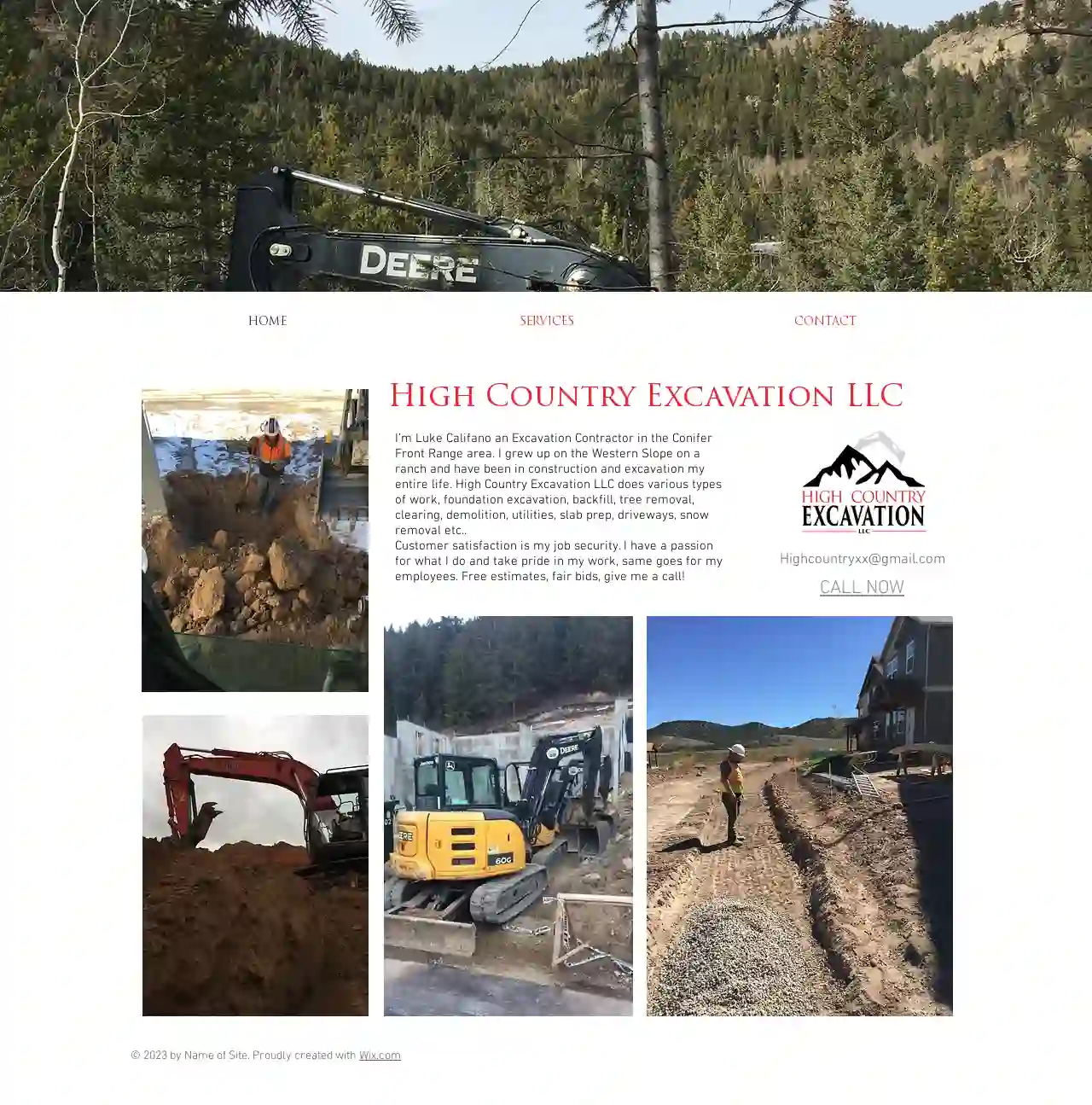
High Country Excavation, LLC
Lakewood, USHigh Country Excavation LLC I’m Luke Califano, an Excavation Contractor in the Conifer Front Range area. I grew up on the Western Slope on a ranch and have been in construction and excavation my entire life. High Country Excavation LLC does various types of work, including foundation excavation, backfill, tree removal, clearing, demolition, utilities, slab prep, driveways, snow removal, and more. Customer satisfaction is my job security. I have a passion for what I do and take pride in my work, and the same goes for my employees. I offer free estimates and fair bids. Give me a call!
- Services
- Why Us?
- Gallery
Get Quote
Ferguson Construction
4.110 reviewsP.O. Box 726400, 400 Canal Street, Sidney, 45365, USBUILDING IS COMPLICATED. YOU DESERVE AN EASY BUTTON. We know the challenges and complications of commercial construction. We anticipate them and even embrace them. Our “easy button” approach simplifies the entire process while reducing uncertainty and miscommunication, giving businesses the positive experience they deserve. EXPLORE OUR EASY BUTTON ON APPROACH
- Services
- Why Us?
- Accreditations
- Testimonials
- Gallery
Get Quote
Garrett Excavating
534 reviews10999 Reed Hartman Hwy, Suite 102, Blue Ash, 45242, USAt Garrett Excavating, we provide commercial and residential excavating services with the quality, transparency, and efficiency you deserve. We treat your project like our own. Our processes are designed to keep costs down and our transparent communication gives you a clear view of every phase of our work. For us, the two things that matter most are your bottom line and your peace of mind.
- Services
- Why Us?
- Testimonials
- Gallery
Get Quote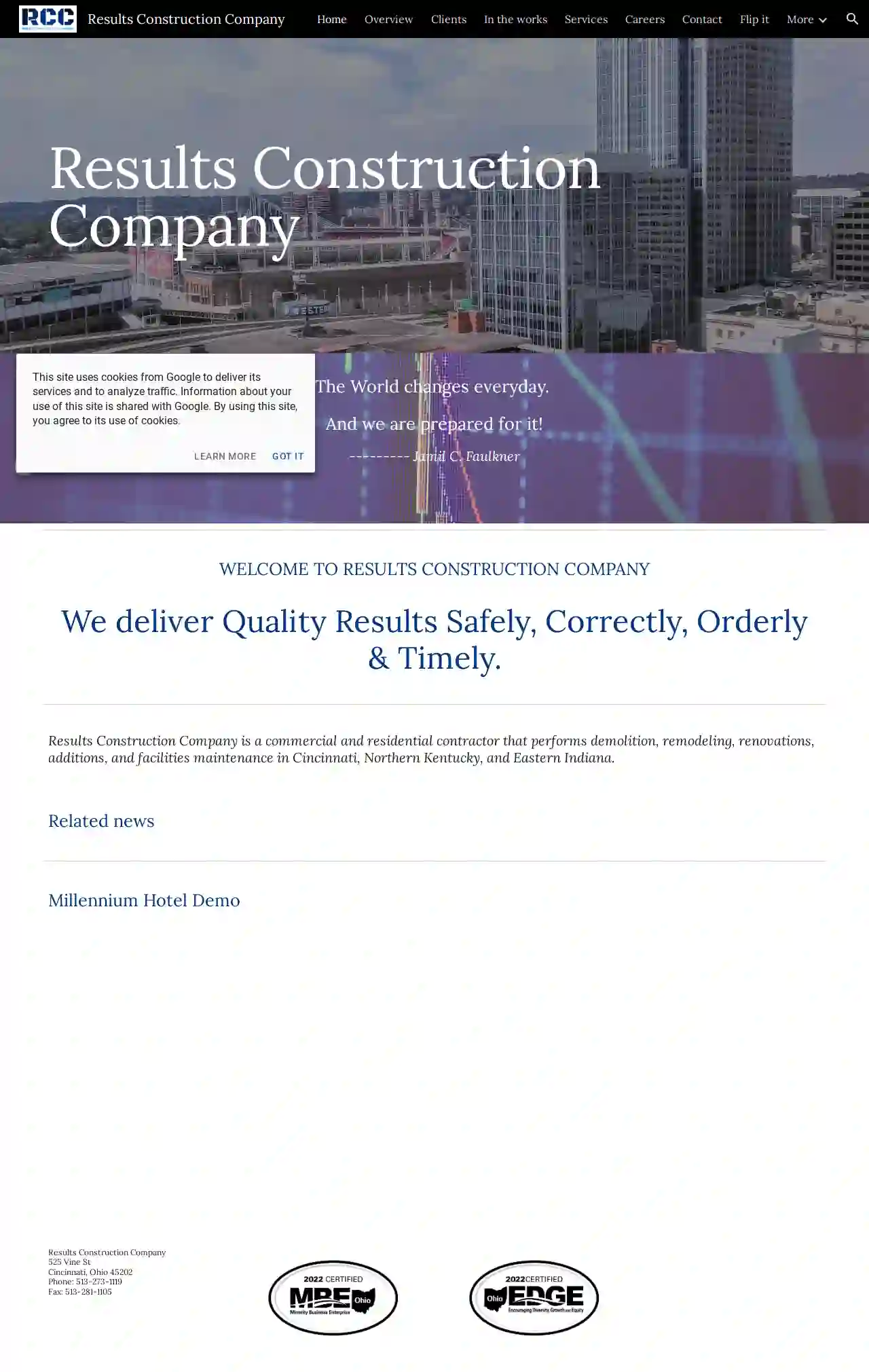
Results Construction Company
4.68 reviews525 Vine St, Cincinnati, 45202, USThe World changes everyday. And we are prepared for it! Jamil C. Faulkner WELCOME TO RESULTS CONSTRUCTION COMPANY We deliver Quality Results Safely, Correctly, Orderly & Timely. Results Construction Company is a commercial and residential contractor that performs demolition, remodeling, renovations, additions, and facilities maintenance in Cincinnati, Northern Kentucky, and Eastern Indiana.
- Services
- Why Us?
- Gallery
Get Quote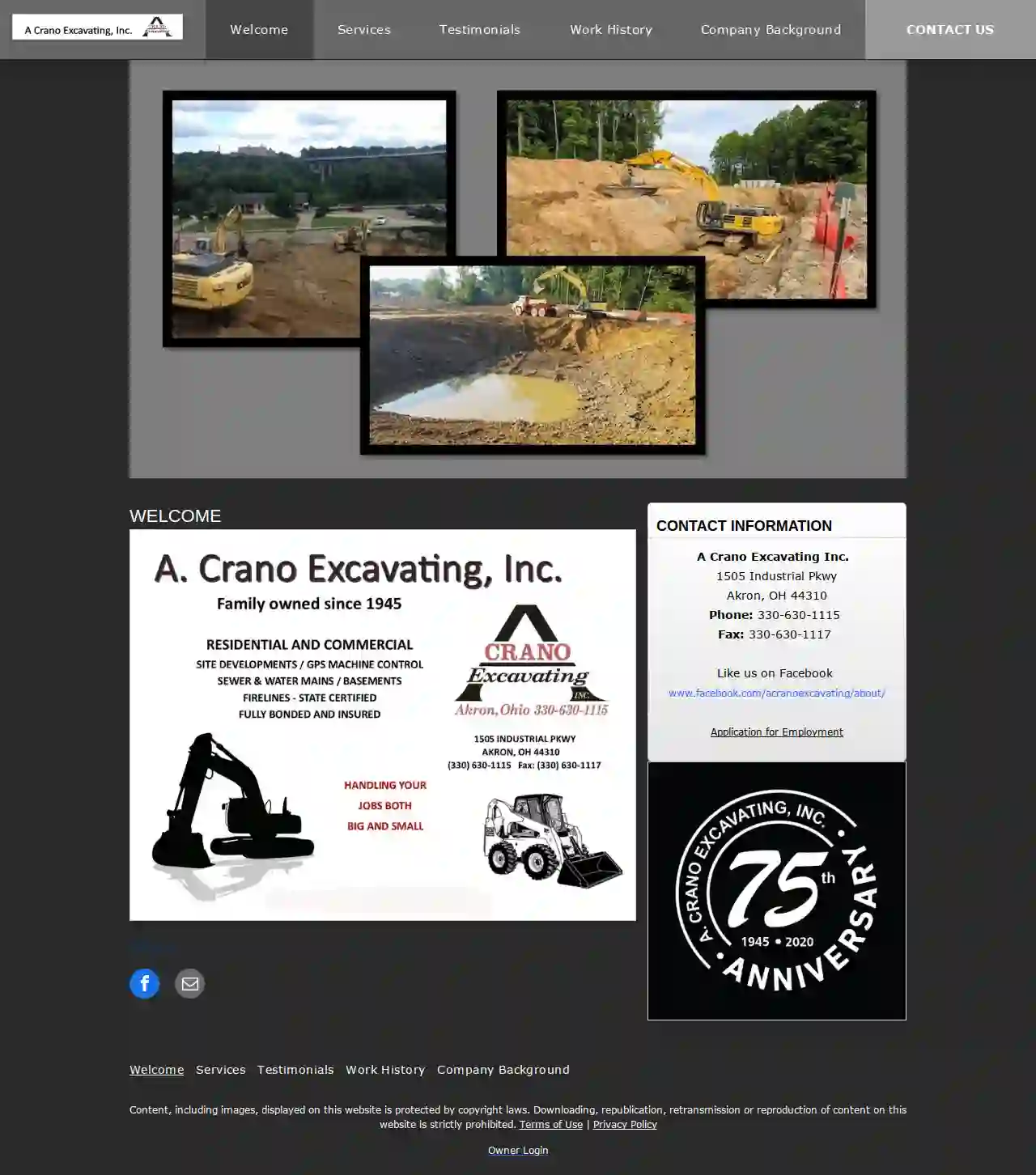
A Crano Excavating Inc
4.815 reviews1505 Industrial Pkwy, Akron, 44310, USWelcome to A Crano Excavating Inc. A Crano Excavating Inc. is a family-owned and operated business with over 30 years of experience in the excavating industry. We are committed to providing our clients with the highest quality service and workmanship. We specialize in a wide range of excavating services, including site preparation, grading, utility installation, and more. We are also proud to offer a variety of other services, such as demolition, hauling, and snow removal. We are fully insured and bonded, and we are committed to safety and environmental responsibility. We are dedicated to providing our clients with the best possible service and value. We are committed to building long-term relationships with our clients, and we are always striving to exceed their expectations. We are a team of experienced professionals who are dedicated to providing our clients with the highest quality service and workmanship. We are committed to safety and environmental responsibility, and we are always striving to exceed our clients' expectations.
- Services
- Why Us?
- Gallery
Get Quote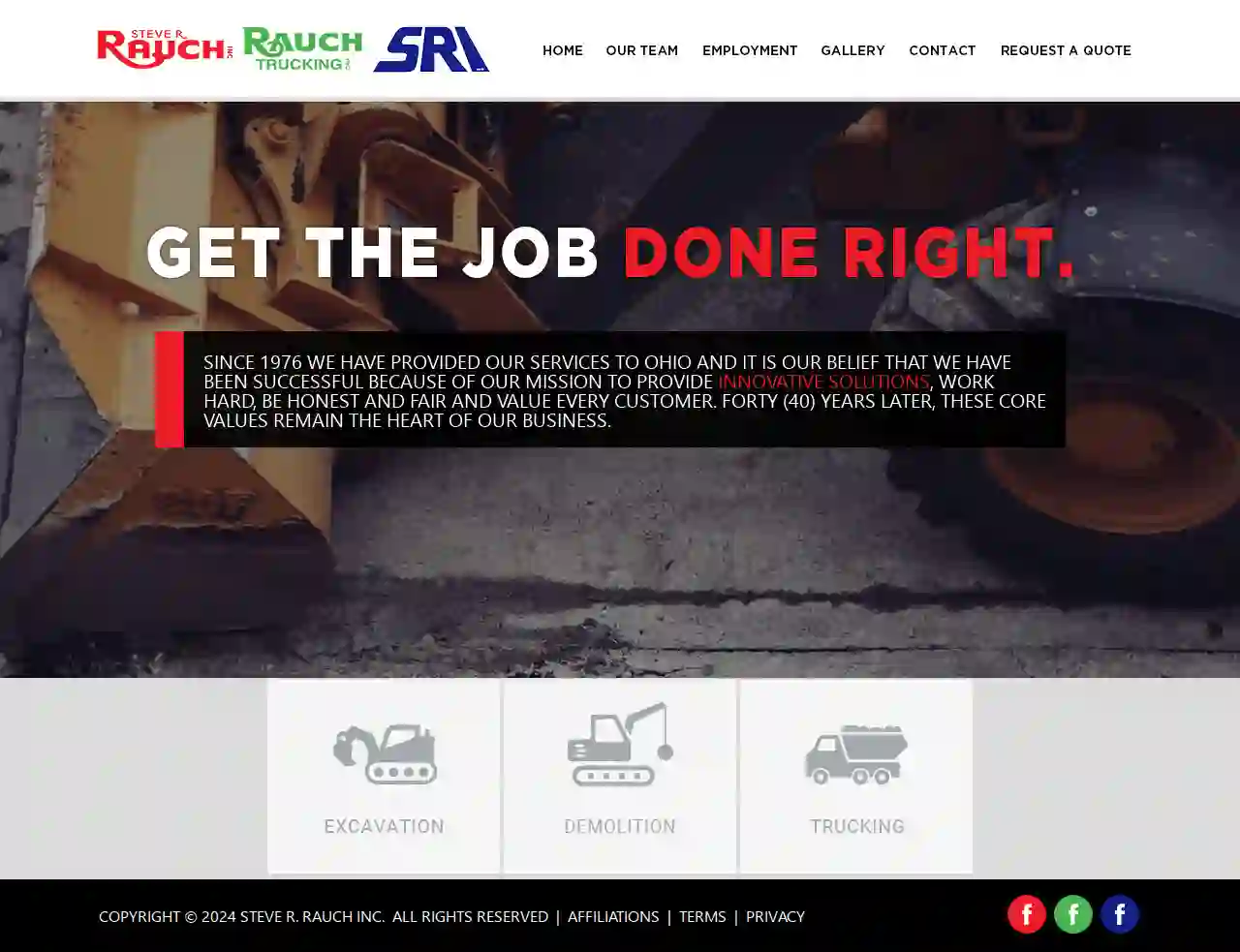
Steve R Rauch, Inc.
3.537 reviewsDayton, USSince 1976, Steve R. Rauch Inc. has been providing services to Ohio. Our success is rooted in our commitment to delivering innovative solutions, working hard, maintaining honesty and fairness, and valuing every customer. These core values remain the foundation of our business, even after 40 years.
- Services
- Why Us?
- Our Team
- Gallery
Get Quote
Dynamic X Excavating
Youngstown, USWhat Your Business Needs If you're looking for solutions to carry your business past challenges and toward your goals, you need Dynamic X. We are an Ohio-based Excavating, Site Development and Demolition Contractor serving businesses across industries for quite some time. We'll create a unique plan to address your project needs, weaknesses and opportunities. Together, we'll help you address and facilitate at a high level in order to meet and exceed your project needs. We’re Dynamic X Excavating, and we’re here to help you complete your project needs efficiently, on time and cost effectively. We at Dynamic X believe in a business core that stems from professional encounters and a strong safety culture. We operate at an extremely high level and strive towards building impenetrable business relationships. Since our founding, we’ve guided countless clients to successful project solutions as well as helped achieve their unique project goals. Using our experience and proven end-to-end methods we’ll help facilitate a sure fired plan to succeed. You can count on our team to give you the best insights towards your immediate project needs. Join us today at Dynamic X Excavating.
- Services
- Why Us?
- Our Team
- Gallery
Get Quote
Over 22,076+ Excavation Companies onboarded
Our excavation providers operate in Montrose-Ghent and surrounding areas!
ExcavationHQ has curated and vetted Top Excavation Businesses in and around Montrose-Ghent. Find a trustworthy business today.
Frequently Asked Questions About Excavation Contractors
- Utility Locates: Contact your utility companies to mark the locations of underground lines before excavation begins. This is usually a free service.
- Hand Digging: Excavate carefully by hand near marked utility lines to avoid damage.
- Potholing: Digging small test holes to expose and verify utility depths and locations.
- Safe Distances: Maintaining a safe distance between excavation equipment and marked utility lines.
- Vacuum Excavation: Using vacuum excavation techniques to expose utilities without digging, reducing the risk of damage.
- Topsoil Removal: Stripping the fertile topsoil layer from a site, often preserving it for landscaping.
- Trench Excavation: Digging long, narrow trenches for utilities (pipes, cables) or foundations.
- Basement Excavation: Removing earth to create a space for a basement beneath a structure.
- Pool Excavation: Digging a precise hole for installing a swimming pool.
- Roadway Excavation: Removing earth and preparing the ground for road construction.
- Demolition Excavation: Clearing debris and preparing the site after demolition.
- Channel Excavation: Creating channels for drainage or irrigation.
- Project Size and Scope: Larger, more complex excavations naturally take longer.
- Soil Conditions: Rocky or challenging soil types can slow down progress.
- Site Accessibility: Limited access might require more time for maneuvering equipment and hauling materials.
- Weather: Inclement weather can cause delays.
- Permitting and Inspections: Waiting for permits or inspections can extend the timeline.
How do you protect utilities during excavation?
What are the different types of excavation?
What is the difference between cut and fill excavation?
Cut: Involves excavating soil from an area where the existing grade is higher than the desired grade.
Fill: Refers to using the excavated soil ('cut' material) to raise the grade in an area where the existing grade is lower than desired.
This method minimizes the need to import or export soil, reducing costs and environmental impact. It's commonly used for site preparation, road construction, and landscaping.
How long does an excavation project take?
How do you protect utilities during excavation?
- Utility Locates: Contact your utility companies to mark the locations of underground lines before excavation begins. This is usually a free service.
- Hand Digging: Excavate carefully by hand near marked utility lines to avoid damage.
- Potholing: Digging small test holes to expose and verify utility depths and locations.
- Safe Distances: Maintaining a safe distance between excavation equipment and marked utility lines.
- Vacuum Excavation: Using vacuum excavation techniques to expose utilities without digging, reducing the risk of damage.
What are the different types of excavation?
- Topsoil Removal: Stripping the fertile topsoil layer from a site, often preserving it for landscaping.
- Trench Excavation: Digging long, narrow trenches for utilities (pipes, cables) or foundations.
- Basement Excavation: Removing earth to create a space for a basement beneath a structure.
- Pool Excavation: Digging a precise hole for installing a swimming pool.
- Roadway Excavation: Removing earth and preparing the ground for road construction.
- Demolition Excavation: Clearing debris and preparing the site after demolition.
- Channel Excavation: Creating channels for drainage or irrigation.
What is the difference between cut and fill excavation?
Cut: Involves excavating soil from an area where the existing grade is higher than the desired grade.
Fill: Refers to using the excavated soil ('cut' material) to raise the grade in an area where the existing grade is lower than desired.
This method minimizes the need to import or export soil, reducing costs and environmental impact. It's commonly used for site preparation, road construction, and landscaping.
How long does an excavation project take?
- Project Size and Scope: Larger, more complex excavations naturally take longer.
- Soil Conditions: Rocky or challenging soil types can slow down progress.
- Site Accessibility: Limited access might require more time for maneuvering equipment and hauling materials.
- Weather: Inclement weather can cause delays.
- Permitting and Inspections: Waiting for permits or inspections can extend the timeline.